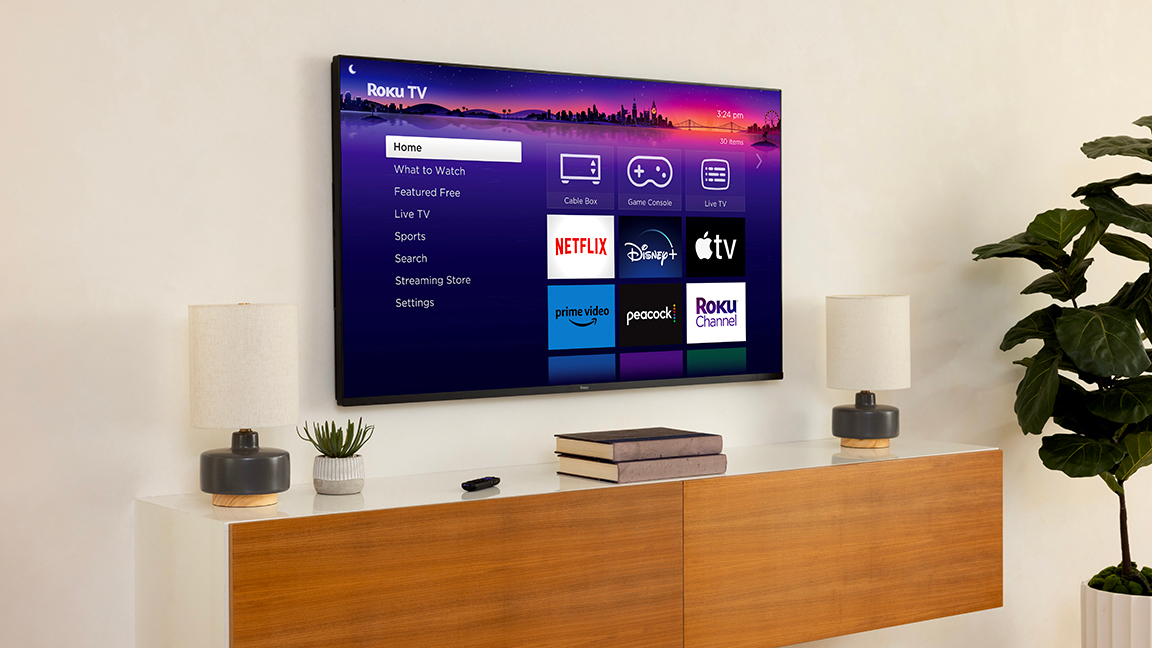
In 2024, Roku will mark its 10-year run as the number one smart TV platform in the US, a ranking the company claims is based on the total number of hours streamed. But that’s not the only Roku landmark worth celebrating, as the company has announced the new Pro series, a lineup of mini-LED TVs in 55-, 65-, and 75-inch screen sizes that will arrive in stores this spring.
Similar to the Roku Plus series TVs that the company introduced in 2023, the new sets feature a 4K QLED display panel with full array local dimming. And while the Plus series is a great budget 4K TV option, it has just-average peak brightness compared to the best TVs, a limitation that the mini-LED backlight on the new Pro series models will presumably improve upon.
Along with the promise of better brightness, the Pro series will come with Roku Smart Picture, a new feature that uses “artificial intelligence, machine learning, and data from content partners to automatically adjust the picture for an optimized viewing experience,” according to the company.
Roku’s design for the Pro series allows for the TVs to rest flat against a wall, and both a Roku-designed wall-mount and new premium remote will also be available.
Roku hasn’t yet specified pricing for the new TVs, though it says that the 75-inch model will sell for under $1,500 upon release.
Analysis: Roku’s Pro series could be the new best value 4K TV
When I reviewed a Roku Plus series TV in 2023, I found that it provided very good picture quality at a reasonable price. I’m also a longtime fan of the Roku smart TV interface, which has a clean, streamlined appearance that makes many other smart TV home screens look like a jumbled mess in comparison.
The budget TV landscape has become crowded, however, and a good picture plus a streamlined smart interface really aren’t enough to make Roku stand out from brands such as Hisense and TCL that also sell lower-cost TVs – with a mini-LED backlight capable of impressive brightness in both cases.
That situation could change with the Pro series. Roku’s addition of mini-LED tech to its forthcoming flagship means that high peak brightness – a benefit for both daytime TV viewing and for watching movies with HDR – will be another picture quality asset in the new models.
While details on the new AI-driven Roku Smart Picture feature are scant, the company has made the case that most TV owners never adjust their TV’s default out-of-box picture settings. Therefore, having the TV automatically optimize pictures based on both the viewing environment and the specific program being displayed could greatly enhance the experience for the average viewer.
In 2023, we selected the Amazon Fire TV Omni QLED as the best value TV in our TechRadar Choice Awards. That model has almost the same peak brightness as the Roku Plus series but uses a much busier smart interface, one that aggressively pushes Amazon programs and services. If the new Pro series can best the Amazon Omni QLED when it comes to brightness, and do so at a lower price point than other budget mini-LED models, Roku could very well be on track to grab our best value TV crown for 2024.
We’ll have more to say about the new Roku Pro series TV after doing a proper review come spring. In the meantime, we’ll see what the competition brings at CES 2024 from 9-12 January in Las Vegas, where all the top new TVs will be on display.







